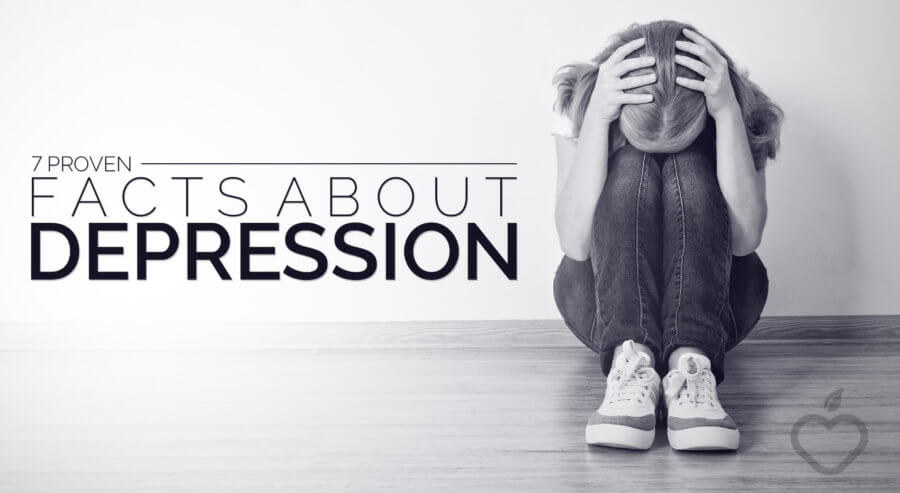What is Depression?
The most common and frequently used term to describe our mood whenever we feel a bit down or sad is ‘Depression’. Little do we know about the seriousness of clinical depression and how it is different from the feeling of sadness, grief, or bereavement that we experience in our day-to-day life.
Depression is a serious mental illness that affects the mood in which an individual experiences persistent sadness and loss of interest and pleasure in previously enjoyed activities. Along with that the condition also affects how people feel and act. Some of the other symptoms that individual experiences for at least 2 weeks and nearly all day, include:
- Changed or disturbed sleep pattern (hypersomnia or insomnia)
- Change in appetite or weight (increased or decreased weight)
- Experience loss of energy/ Fatigue
- The feeling of guilt, hopelessness, and worthlessness
- Suicidal thoughts
- Distorted cognitive abilities such as inability to concentrate, think rationally
- Slow physical activity and speech
Note that, the severity of the depression symptoms varies from mild, moderate, and severe. The episode can be single/ persistent (for more than 1 -2 years) or can be recurrent (at least 2 episodes with a minimum of 2 weeks).
The above-mentioned symptoms can co-exist with other medical conditions (physical or psychological), therefore, it is necessary to rule out the other conditions before reaching the conclusion.
How depression is different from sadness?
Sadness is a natural feeling accompanied by a unique, uncertain, unpleasurable, and disadvantageous situation. Once the problem is resolved the feeling of sadness will also vanish. Unlike sadness, depression is a condition in which feeling of sadness and loneliness is not accompanied by a specific situation and it is persistent for more than 2 weeks.
Another point of differentiation is when we are experiencing sadness, our self-esteem, confidence, and cognitive functioning are not affected. However, in depression an individuals’ self-esteem, confidence has decreased. They develop a sense of worthlessness and hopelessness and which eventually leads to recurrent suicidal thoughts.
Common risk factors of depression
- Biological factors- decreased levels of neurotransmitters including dopamine, serotonin, and norepinephrine leads to depression.
- Genetic factors- First-degree relatives have a greater influence on the development of mood disorders i.e., If parents have depression, then children are at greater risk of developing depression.
The twin studies have also shown the role of genetics or inheritance of depression. The monozygotic twins are at about 70-90% risk of developing depression.
- Life events and environmental factors- The persistent and chronic stressful event leads to change in biology (secretion of neurotransmitters), result in depression. Other factors such as unemployment, poverty, death of loved ones, etc can also lead to depression.
- Personality factors- People with low self-esteem, low self-confidence, low tolerance to uncertainty, and stressful event are more vulnerable to develop depression.
Treatment
Depression is a condition that can be chronic but can be treated with early detection and intervention. It has a good prognosis rate, Research have revealed that people who took intervention in the very first episode of depression, have a 50% chance to fully recover within 3 months, but if left untreated then it can become a chronic condition and may last for more than 6 months. Also, for those who discontinue their treatment, their chance of relapse is high. Therefore, after a thorough investigation and diagnosis of the disorder from the mental health professional, it is necessary to get treatment.
The common treatment alternatives are:
- Hospitalization- When the patient shows clear suicidal ideation and has attempted suicide or if the patient has grossly reduced the intake of food, then it is crucial to hospitalize the patient.
- Medication- As biochemistry or biological factors contribute to depression, to balance the biochemistry the antidepressants will be given to the patients. In most cases, sedatives show improvement within the first few weeks, but if it’s ineffective them professional scan either changes the dosage or recommends psychotherapy along with medication.
- Psychotherapy- It’s a talk therapy and widely known and effective psychotherapy is CBT (Cognitive behavioral therapy) which focus on here and now (present) for solving problems. It helps the patient to recognize the irrational or negative thought patterns and helps them to alter them with positive and rational thoughts. The number of sessions varies as per the severity of the symptoms.
